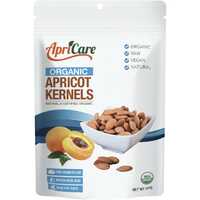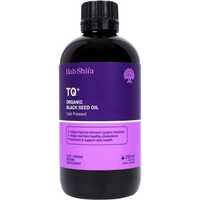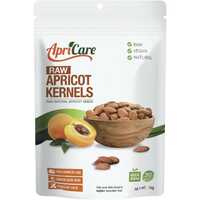Apricot seeds, also known as apricot kernels, have gained attention in recent years for their potential health benefits. These small, almond-shaped seeds found inside the pits of apricots are rich in nutrients and bioactive compounds that may offer various therapeutic properties. As interest in natural and alternative remedies grows, exploring the health benefits of apricot seeds has become an intriguing area of research.
This article delves into the world of apricot seeds, examining their nutritional composition and the potential health benefits they may provide. It explores their antioxidant, anti-inflammatory, analgesic, and antimicrobial properties, as well as their potential role in cancer treatment and diabetes management. The article also discusses the use of apricot kernel oil and the presence of vitamin B17 in apricot seeds. Additionally, it addresses the scientific evidence supporting these claims, potential risks and side effects, and guidelines for safe consumption.
Nutritional Composition of Apricot Kernels
Apricot kernels are a rich source of proteins, carbohydrates, vitamins, and minerals [7]. The nutritional composition of apricot kernels varies depending on the variety, origin, maturity stage, and climatic conditions [21].
The apricot kernel comprises various polyphenolic compounds such as anthocyanin, phenolics, flavonoids, and carotenoids [20,21,22,23,24,25]. It also contains quality proteins and vitamin E [23,26].
Macros and Micros
The protein content in apricot kernels ranges from 14.6 to 27.1%. Carbohydrates are present in the range of 17.5 to 35.6%. Crude fibre content varies from 11.85 to 13.6%. The fat content is between 2.1 to 3%, with oleic acid being the predominant fatty acid at 54.1 to 61.91%. Linoleic acid and palmitic acid are also present in significant amounts [16]. The ash content ranges from 1.3 to 2.23%. Moisture content is typically between 27.4 to 38.8%.
Vitamins and Minerals
Apricot kernels contain vitamin E in the range of 0.003 to 0.040 g per 100 g [26]. Vitamin B17 is present at 0.003 to 0.0058 g per 100 g [27]. Various minerals such as calcium (0.0076 g), iron (0.0042 g), phosphorus (0.0028 g), sodium (0.0011 g), magnesium (0.003 g), copper (0.007 g), and manganese (0.001 g) are also found in apricot kernels [7,28].
Fatty Acids
The total phenol content in apricot kernels ranges from 0.036 to 0.072 g per 100 g, with gallic acid being a major phenolic compound at 2.1 to 4.1 g per 100 g [39,40,41]. Flavonoid content is between 0.012 to 0.034 g per 100 g [40,42]. Carotenoid content varies from 0.005 to 0.012 g per 100 g [40]. Ascorbic acid and caffeic acid are also present in small amounts [39,41].
The protein extract of apricot kernels can be used for the preparation of transglutaminase-induced gel, which has applications in functional foods, dietary supplements, and pharmaceutical products [43,44]. The hydrocyanide (HCN) content in apricot kernels ranges from 9.18 to 12.53 mg per 100 g [45].
Potential Health Benefits of Apricot Kernels
Apricot kernels contain a variety of nutrients and bioactive compounds that offer several potential health benefits. The presence of amygdalin, also known as vitamin B17, in apricot seeds is believed to have anti-cancer properties [14]. Amygdalin has been shown to inhibit the growth of cancer cells and reduce the risk of various types of cancer, including lung, breast, prostate, and colon cancers [14].
In addition to their anti-cancer potential, apricot kernels are rich in antioxidants that protect cells from oxidative damage caused by free radicals [19]. These antioxidants, such as caffeic acid and gallic acid, help combat common degenerative disorders like cancer and cardiovascular diseases [65] [78].
The high content of dietary fiber in apricot kernels also contributes to their health benefits. Fiber aids in maintaining gut health, lowering cholesterol absorption, and reducing the risk of obesity and diabetes [19]. Furthermore, the presence of essential fatty acids, particularly oleic and linoleic acids, in apricot kernel oil promotes heart health by lowering LDL cholesterol levels [19] [82].
Apricot kernels have also been traditionally used in Chinese medicine for their anti-inflammatory properties [6]. The flavonoids and other phenolic compounds found in apricot seeds, such as quercetin, catechins, and chlorogenic acid, help reduce inflammation and oxidative stress in the body [21].
Moreover, apricot kernel oil is beneficial for skin health due to its moisturizing and nourishing properties [21]. The oil is rich in vitamins A and E, which help maintain healthy skin and protect it from environmental stressors. Apricot kernel oil is commonly used in cosmetic products like creams, soaps, and lotions to promote soft, supple skin [21].
While apricot kernels offer numerous health benefits, it is important to consume them in moderation. The presence of amygdalin can lead to cyanide toxicity if consumed in large quantities [15]. It is recommended to limit the intake of apricot seeds to a few per day and consult with a healthcare professional before using them as a dietary supplement or alternative treatment [45].
Uses in the Pharmaceutical Industry
Apricot kernels have been used in traditional medicine for centuries to treat various ailments. The kernels contain amygdalin, a compound that has been studied for its potential medicinal properties [69]. In pharmaceutical industries, apricot kernels are used to prevent diseases such as migraine, constipation, asthma, and hypertension. They have also been used to treat coughs and improve cerebral functions [69].
Apricot kernels are used in the preparation of various medicines for the treatment of cardiovascular diseases, antimutagenic, antitussive, anti-inflammatory, antimicrobial, and cancer [71]. A disease-preventing black plum apricot kernel is used for suppressing asthma, cough, thrombosis, and relaxing cough. The kernel seed is also used for the preparation of Chinese Guangmo moon cakes, which are used for the treatment of diseases such as chronic bronchitis and pulmonary tuberculosis [69].
Over the past few years, the market value of apricot kernel in pharmaceutical industries has increased rapidly in various developed and developing countries [71]. Extract of the apricot kernel can be effectively used as an antifungal ingredient for the prevention of skin and health issues. Apricot oil can promote blood circulation and release pain and inflammation. Additionally, several commercial products are already available in the market [72].
Apricot kernel flour has been used for the preparation of herbal tea for patients suffering from diseases such as dry mouth, disturbed sleep, anorexia, etc. [73]. Apart from this, the apricot kernel has also been used for the treatment of skin diseases such as acne vulgaris, dandruff, and furuncle due to its antioxidant, antimicrobial, anti-inflammatory, and wound-healing properties. It has also been used to fight free radicals and promotes skin barrier homeostasis [73].
Scientific Research and Evidence
Despite decades of research dating back to the 1950s, there is no evidence that Laetrile, a modified form of amygdalin, can treat tumors in animals. Clinical trials in humans have also failed to find any benefits of using Laetrile for cancer treatment [38]. Proponents claim that Laetrile releases cyanide in the body which kills cancer cells while leaving normal cells unharmed. However, while Laetrile can be converted to cyanide in the body, it is not true that normal cells remain unaffected. In fact, several cases of cyanide poisoning and even death have been linked to Laetrile treatment [38].
Some studies suggest that amygdalin, the natural compound found in apricot kernels, may have potential anti-cancer properties. However, there is currently no research to support the claim that eating apricot seeds can fight cancer [42]. Scientists warn that when metabolized in the body, amygdalin converts to cyanide at levels that could be harmful [42].
The United States Food and Drug Administration (FDA) has not approved Laetrile as a cancer treatment due to the lack of clinical evidence of its safety and efficacy [42]. Using unproven methods like Laetrile in place of evidence-based cancer treatments can cause serious harm [42].
A 2015 Cochrane systematic review found that the claimed benefits of Laetrile are not supported by controlled clinical trials. The review also noted a risk of serious side effects from cyanide poisoning after taking Laetrile or amygdalin orally [39].
While some in vitro studies have shown that amygdalin alone or its activated components may suppress proliferation of certain cancer cells, the specific mechanism of apoptosis is still being researched [39]. More human studies are needed to determine if amygdalin extracted from apricot kernels has any potential for use in cancer treatments in the future [42] [43].
Contradictions in Findings
There are some contradictions in the available data about the benefits and toxic effects of amygdalin [44]. While in vitro experiments suggest anti-cancer activity, animal and human studies have failed to show efficacy [38] [39]. The potential toxicity due to cyanide release also remains a major concern [38] [42].
Carefully designed dose-response studies are required to overcome the possible side effects and assure the safety of amygdalin before it can be considered as a therapeutic agent [44]. At present, healthcare professionals cannot recommend the use of apricot kernels or Laetrile to treat cancer due to the lack of clinical evidence and risk of cyanide poisoning which can be fatal [42].
Potential Risks and Side Effects
While apricot kernels offer potential health benefits, they also pose significant risks and side effects due to their content of amygdalin, a compound that converts to highly toxic cyanide during digestion [46] [49]. Consuming large quantities of apricot kernels exposes individuals to the risk of cyanide poisoning [46] [54].
The European Food Safety Authority (EFSA) has set a safe limit for apricot kernel consumption, which is around 1 to 3 kernels per day for adults and half a small kernel for young children [46]. Consuming larger amounts is likely unsafe and can lead to serious side effects, including seizures and death [49].
Cyanide Toxicity
Apricot kernels contain amygdalin, which breaks down to release poisonous cyanide when eaten [54]. Cyanide poisoning can cause headaches, nausea, vomiting, lethargy, and in extreme cases, even death [46] [54]. Adults may face these symptoms from eating just three small raw apricot kernels, while for toddlers, even one small seed can be dangerous [54].
Symptoms of acute cyanide poisoning include convulsions, respiratory problems, decreased heart rate, loss of consciousness, and coma [46]. Several cases of apricot kernel poisoning have been reported to the French Poison Control Centres since 2012, with symptoms such as dizziness, discomfort, headache, digestive disorders, heart palpitations, and difficulty breathing [46].
Allergic Reactions
There is limited information available regarding allergic reactions to apricot kernels specifically. However, individuals with tree nut allergies may need to exercise caution as apricot kernels are similar in appearance and taste to almonds [54].
Precautions
Consumers are advised not to eat raw, unprocessed, or powdered apricot kernels due to the risk of cyanide toxicity [54]. Roasted apricot kernels, especially those with skin, are also not safe to consume [54].
Pregnant and breastfeeding women should avoid apricot kernels altogether due to their cyanide content [49]. It is likely unsafe for children to consume whole apricot kernels, as even half a single kernel can cause serious side effects in small children [49].
To reduce the risk of cyanide poisoning, consumers should:
- Check with the retailer if the product is raw or unprocessed [54].
- Not eat raw apricot kernels [54].
- Cook apricot kernels before consumption by boiling for at least 30 minutes [54].
- Eat apricot kernels in moderation, especially young children and toddlers [54].
- Seek medical attention immediately if feeling unwell after eating apricot kernels [54].
While apricot kernels are sometimes promoted as an alternative cancer therapy, there is no scientific evidence supporting their effectiveness in cancer treatment [46] [47]. Healthcare professionals cannot recommend the use of apricot kernels or Laetrile to treat cancer due to the lack of clinical evidence and risk of cyanide poisoning, which can be fatal [42].
How to Safely Consume Apricot Kernels
Apricot kernels contain amygdalin, a compound that can convert to cyanide when consumed [55]. Eating raw apricot kernels in large amounts can lead to cyanide poisoning, causing symptoms such as headaches, nausea, vomiting, lethargy, and in extreme cases, even death [46] [54]. Adults may experience these symptoms from eating just three small raw apricot kernels, while for toddlers, even one small seed can be dangerous [54].
To reduce the risk of cyanide toxicity, it is crucial to follow recommended dosages and safe preparation methods when consuming apricot kernels. The European Food Safety Authority (EFSA) has set a safe limit for apricot kernel consumption at around 1 to 3 kernels per day for adults and half a small kernel for young children [46]. Consuming larger amounts is likely unsafe and can lead to serious side effects [49].
Recommended Dosage
The safest dose of amygdalin is 0.37 grams or 3 small kernels for adults [56]. Higher doses, or less than half of a larger kernel, can pose health risks [56]. It is essential to eat apricot kernels in moderation, especially for young children and toddlers [58].
Safe Preparation Methods
To safely consume apricot kernels, it is important to:
- Check with the retailer if the product is raw or unprocessed [54].
- Avoid eating raw apricot kernels [54].
- Cook apricot kernels before consumption by boiling them for at least 30 minutes [54].
- Limit intake to the recommended dosage, particularly for young children and toddlers [54].
- Seek medical attention immediately if feeling unwell after eating apricot kernels [54].
Roasted apricot kernels, especially those with skin, are not safe to consume [54]. Pregnant and breastfeeding women should avoid apricot kernels altogether due to their cyanide content [49].
Conclusion
Apricot kernels have garnered attention for their potential health benefits, largely attributed to their nutritional composition and bioactive compounds. The presence of amygdalin, also known as vitamin B17, along with antioxidants, essential fatty acids, and fibre, has led to claims of anti-cancer, anti-inflammatory, and heart-health promoting properties. While some in vitro studies suggest potential therapeutic applications, particularly in the pharmaceutical industry, clinical evidence supporting these claims is lacking.
However, the consumption of apricot kernels also carries significant risks due to the presence of amygdalin, which can convert to toxic cyanide in the body. Ingesting large quantities of apricot kernels can lead to cyanide poisoning, causing severe side effects and even death. Therefore, it is crucial to exercise caution and adhere to recommended dosages and safe preparation methods when consuming apricot kernels, especially for young children, pregnant women, and those with pre-existing health conditions.
FAQs
1. What is the recommended daily intake of apricot kernels?
It is advised to consume no more than 2 small apricot kernels or half of a large apricot kernel per day. Exceeding this amount could be harmful due to the presence of amygdalin in the kernels.
2. What are the health effects of apricot kernels on the body?
Apricot kernels are rich in antioxidants, which help protect cells from damage caused by free radicals. Additionally, they possess anti-inflammatory properties and contain vitamin B17, which is noted for its potential role in cancer prevention.
3. How should apricot kernels be prepared before consumption?
Raw apricot kernels should not be eaten. To prepare them safely, boil the kernels for at least 30 minutes. It is particularly important to ensure apricot kernels are consumed in moderation, especially by young children and toddlers.
4. Does boiling apricot kernels detoxify them?
Yes, boiling bitter apricot seeds thoroughly helps to release and reduce the levels of toxic hydrogen cyanide, thereby making them safer for consumption.
References
[1] - https://www.ncbi.nlm.nih.gov/pmc/articles/PMC9332734/
[2] - https://www.medicinenet.com/what_are_apricot_seeds_good_for/article.htm
[3] - https://www.medicalnewstoday.com/articles/can-apricot-seeds-help-treat-cancer
[4] - https://www.ncbi.nlm.nih.gov/pmc/articles/PMC9332734/
[5] - https://www.webmd.com/vitamins/ai/ingredientmono-1190/apricot-kernel
[6] - https://www.ncbi.nlm.nih.gov/pmc/articles/PMC9370680/
[7] - https://www.ncbi.nlm.nih.gov/pmc/articles/PMC9332734/
[8] - https://www.medicinenet.com/what_are_apricot_seeds_good_for/article.htm
[9] - https://www.ncbi.nlm.nih.gov/pmc/articles/PMC9370680/
[10] - https://www.ncbi.nlm.nih.gov/pmc/articles/PMC9332734/
[11] - https://www.medicinenet.com/what_are_apricot_seeds_good_for/article.htm
[12] - https://www.webmd.com/vitamins/ai/ingredientmono-1190/apricot-kernel
[13] - https://www.ncbi.nlm.nih.gov/pmc/articles/PMC9332734/
[14] - https://www.researchgate.net/figure/Fatty-acid-composition-of-apricot-kernel-oil_tbl2_289239944
[15] - https://www.ncbi.nlm.nih.gov/pmc/articles/PMC9905367/
[16] - https://www.cancer.org.au/iheard/can-eating-apricot-kernels-cure-cancer
[17] - https://www.webmd.com/cancer/cancer-apricot-seeds
[18] - https://pubmed.ncbi.nlm.nih.gov/29308747/
[19] - https://www.ncbi.nlm.nih.gov/pmc/articles/PMC9332734/
[20] - https://www.medicinenet.com/what_are_apricot_seeds_good_for/article.htm
[21] - https://www.healthline.com/health/can-apricot-seeds-treat-cancer
[22] - https://www.ncbi.nlm.nih.gov/pmc/articles/PMC9332734/
[23] - https://www.mdpi.com/2297-8739/10/6/332
[24] - https://www.ncbi.nlm.nih.gov/pmc/articles/PMC9370680/
[25] - https://www.ncbi.nlm.nih.gov/pmc/articles/PMC9332734/
[26] - https://www.tammyfender.com/blogs/journal/benefits-of-apricot-kernel-oil-for-skin
[27] - https://www.awo.com.au/blog/apricot-kernel-oil-uses-and-benefits
[28] - https://www.ncbi.nlm.nih.gov/pmc/articles/PMC9332734/
[29] - https://www.webmd.com/vitamins/ai/ingredientmono-1190/apricot-kernel
[30] - https://www.medicinenet.com/what_are_apricot_seeds_good_for/article.htm
[31] - https://www.ncbi.nlm.nih.gov/pmc/articles/PMC9332734/
[32] - https://upcirclebeauty.com/blogs/upcircle/apricot-kernel-oil
[33] - https://www.newdirectionsaromatics.com/blog/products/all-about-apricot-kernel-carrier-oils.html
[34] - https://www.webmd.com/vitamins/ai/ingredientmono-1190/apricot-kernel
[35] - https://www.ncbi.nlm.nih.gov/pmc/articles/PMC9332734/
[36] - https://www.medicinenet.com/what_are_apricot_seeds_good_for/article.htm
[37] - https://pubmed.ncbi.nlm.nih.gov/29308747/
[38] - https://www.cancer.org.au/iheard/can-eating-apricot-kernels-cure-cancer
[39] - https://www.cancerresearchuk.org/about-cancer/treatment/complementary-alternative-therapies/individual-therapies/laetrile
[40] - https://www.ncbi.nlm.nih.gov/pmc/articles/PMC9332734/
[41] - https://www.ncbi.nlm.nih.gov/pmc/articles/PMC9370680/
[42] - https://www.medicalnewstoday.com/articles/can-apricot-seeds-help-treat-cancer
[43] - https://www.ncbi.nlm.nih.gov/pmc/articles/PMC9370680/
[44] - https://www.ncbi.nlm.nih.gov/pmc/articles/PMC8468697/
[45] - https://www.cancer.org.au/iheard/can-eating-apricot-kernels-cure-cancer
[46] - https://www.anses.fr/en/content/apricot-kernels-pose-risk-cyanide-poisoning
[47] - https://www.foodstandards.gov.au/consumer/safety/Apricot-kernels-raw
[48] - https://pubmed.ncbi.nlm.nih.gov/20196932/
[49] - https://www.webmd.com/vitamins/ai/ingredientmono-1190/apricot-kernel
[50] - https://www.thermofisher.com/phadia/wo/en/resources/allergen-encyclopedia/whole-allergens.html?key=f237
[51] - http://research.bmh.manchester.ac.uk/informall/allergenic-food/index.aspx?FoodId=410
[52] - https://www.webmd.com/vitamins/ai/ingredientmono-1190/apricot-kernel
[53] - https://www.foodstandards.gov.au/consumer/safety/Apricot-kernels-raw
[54] - https://www.sfa.gov.sg/food-information/risk-at-a-glance/apricot-kernels
[55] - https://www.webmd.com/vitamins/ai/ingredientmono-1190/apricot-kernel
[56] - https://www.medicinenet.com/how_many_apricot_seeds_are_safe/article.htm
[57] - https://www.anses.fr/en/system/files/VigilansesN5_AmandesEN.pdf
[58] - https://www.sfa.gov.sg/food-information/risk-at-a-glance/apricot-kernels
[59] - https://www.foodstandards.gov.au/consumer/safety/Apricot-kernels-raw
[60] - https://www.ncbi.nlm.nih.gov/pmc/articles/PMC9332734/
[61] - https://www.foodstandards.gov.au/consumer/safety/Apricot-kernels-raw
[62] - https://www.cancer.org.au/iheard/can-eating-apricot-kernels-cure-cancer
[63] - https://en.wikipedia.org/wiki/Apricot_kernel
[64] - https://www.webmd.com/vitamins/ai/ingredientmono-1190/apricot-kernel
[65] - https://www.ncbi.nlm.nih.gov/pmc/articles/PMC9332734/
[66] - https://www.medicalnewstoday.com/articles/can-apricot-seeds-help-treat-cancer


 Certified Organic
Certified Organic Vegan Friendly
Vegan Friendly  Vegetarian
Vegetarian Organic Ingredients
Organic Ingredients Dairy Free
Dairy Free Gluten Free
Gluten Free Keto Friendly
Keto Friendly


































